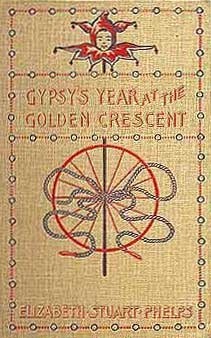
Part of Series
Author

Elizabeth Stuart Phelps Ward, born Mary Gray Phelps, (August 31, 1844-January 28, 1911) was an American author. She was born at Andover, Massachusetts. In most of her writings she used her mother's name "Elizabeth Stuart Phelps" as a pseudonym, both before and after her marriage in 1888 to Herbert Dickinson Ward, a journalist seventeen years younger. She also used the pseudonym Mary Adams. Her father Austin Phelps was pastor of the Pine Street Congregational Church until 1848, when he accepted a position as the Chair of Rhetoric at Andover Theological Seminary and moved the family to Boston. Ward wrote three Spiritualist novels, The Gates Ajar, Between the Gates and Beyond the Gates, and a novella about animal rights, Loveliness. While writing other popular stories, she was also a great advocate, by lecturing and otherwise, for social reform, temperance, and the emancipation of women. She was also involved in clothing reform for women, urging them to burn their corsets in 1874. Ward's mother, Elizabeth (Wooster) Stuart Phelps, (August 13, 1815—November 30, 1852) wrote the Kitty Brown books under the pen name H. Trusta. Elizabeth Stuart Phelps and her husband co-authored two Biblical romances in 1890 and 1891. Her autobiography, Chapters from a Life was published in 1896 after being serialized in McClure's. She also wrote a large number of essays for Harper's Phelps continued to write short stories and novels into the twentieth century. One work, Trixy (1904), dealt with another cause she supported, anti-vivisection (a topic on which she also addressed the Massachusetts State Legislature). Her last work, Comrades (1911), was published posthumously. Phelps died January 28, 1911, in Newton Center, Massachusetts.

